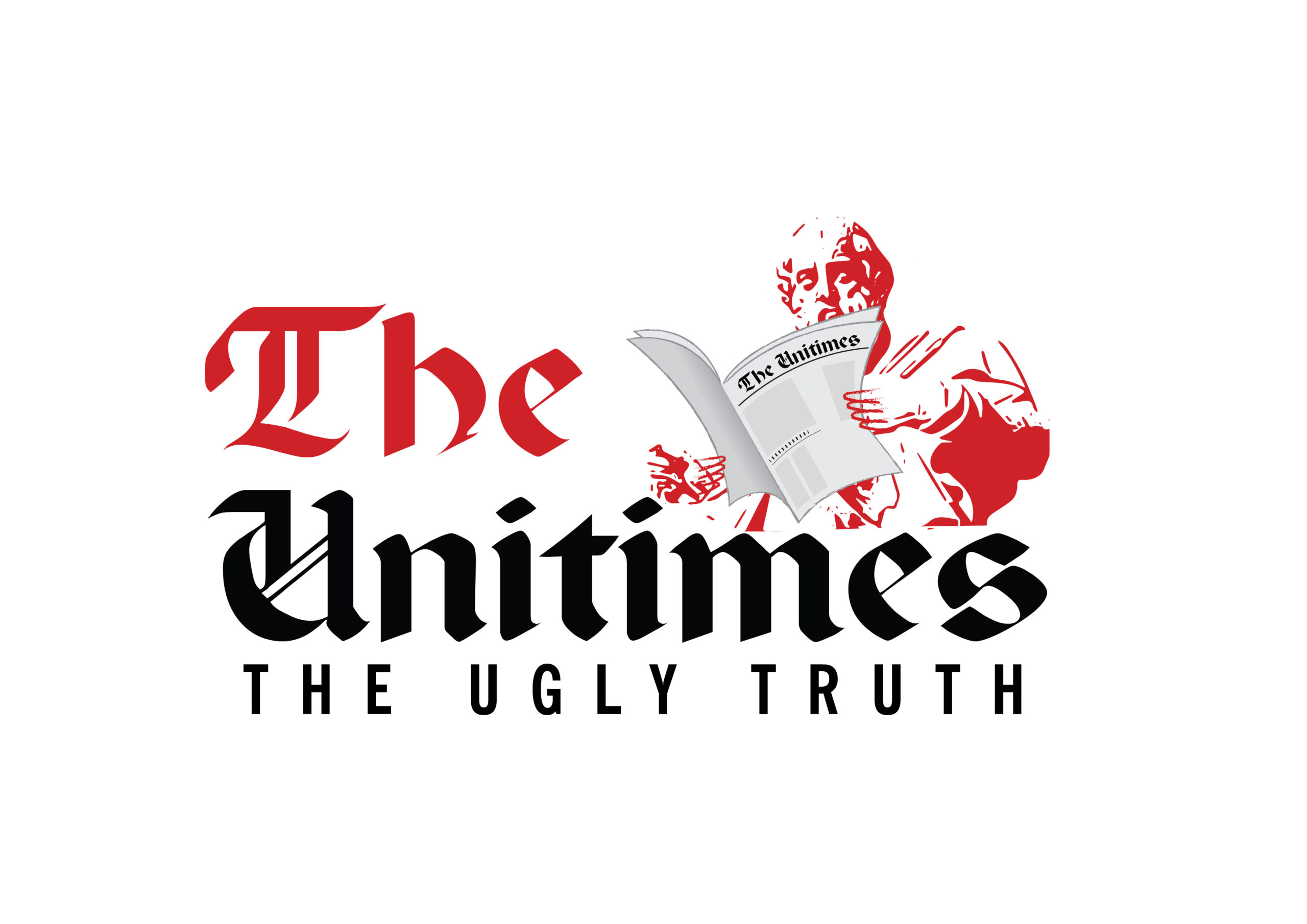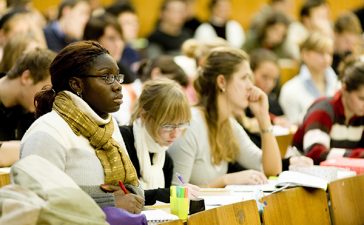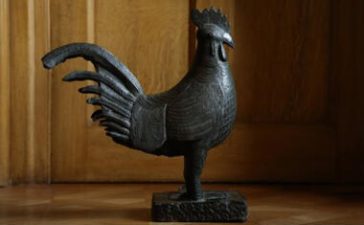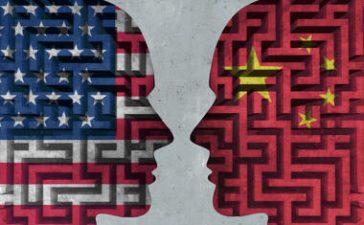United States President Donald Trump has announced visa restrictions against Chinese students and researchers with links to China’s military – the People’s Liberation Army or PLA. The move announced on 29 May will apply to students applying for graduate and postgraduate studies. Prospective and existing undergraduate students will not be affected.
Trump’s “Proclamation on the Suspension of Entry as Non-immigrants of Certain Students and Researchers from the People’s Republic of China” took effect on 1 June and will apply indefinitely.
However, experts say it is not easy to identify military links, while many technologies are dual-use – able to be used for both civilian and military purposes.
The US has already limited visa lengths for some Chinese students and researchers, increased scrutiny of universities’ foreign gifts from China and initiated criminal proceedings against academics with undeclared funding from Chinese universities and research agencies, on the grounds of protecting US technology.
The latest proclamation said the People’s Republic of China (PRC) authorities “use some Chinese students, mostly postgraduate students and post-doctorate researchers, to operate as non-traditional collectors of intellectual property. Thus, students or researchers from the PRC studying or researching beyond the undergraduate level who are or have been associated with the PLA are at high risk of being exploited or co-opted by the PRC authorities and provide particular cause for concern.”
The new visa restrictions apply to any person “who either receives funding from or who currently is employed by, studies at, or conducts research at or on behalf of, or has been employed by, studied at, or conducted research at or on behalf of, an entity in the PRC that implements or supports the PRC’s ‘military-civil fusion strategy’”.
It is believed some 3,000 current Chinese students and researchers in the US could be denied re-entry or visa renewals. But the US administration steered clear of expulsions of students and researchers already in the US, as feared by the Chinese authorities.
Secretary of State Mike Pompeo, in a press statement on 1 June, said: “Our actions last Friday are a direct consequence of PRC government strategies and policies that exploit the access of some of China’s brightest graduate students and researchers, in targeted fields, to divert and steal sensitive technologies and intellectual property from US institutions, taking undue advantage of our open and collaborative academic and research environment.”
Pompeo added that “the graduate students and researchers who are targeted, co-opted, and exploited by the PRC government for its military gain represent a small subset of Chinese student and researcher visa applicants coming to the United States”.
“We expect this new visa policy will contribute to an improved, open and transparent environment in which US and Chinese scholars can engage with greater trust,” he said.
“This will have an impact because the PLA as well as its subsidiaries and associated organisations send a lot of students, particularly graduate students, to the US,” said Willy Lam, adjunct professor at the Centre for China Studies at the Chinese University of Hong Kong. “But this could be applied quite broadly. So it is not clear exactly who might be affected,” Lam told University World News.
Lam noted that it may not necessarily solve the problems perceived by the US. “The Chinese have a symbiotic relationship between the army and civilians, and the US is still allowing in civilians, particularly students in the sciences and technology,” he said. “What students who have no apparent links with the military have learned might later on be passed to the military.”
Not unexpectedly, the move angered the Chinese government. Government spokesperson Zhao Lijian said on 1 June: “This action is stark political persecution and racial discrimination and a grave violation of the legitimate rights and interests of Chinese students and researchers in the US.”
He added: “It goes against the trend of the times in international talent exchange.”
“We urge the US to immediately stop using all sorts of excuses to wantonly restrict and oppress Chinese students and researchers in the US,” he said, calling on the US to retract the decision “and respect and protect the legitimate rights and interests of Chinese students in the US”.
Lack of clarity
Many within universities fear that the lack of clarity on what constitutes PLA links could lead to unfair visa rejections.
Esther Brimmer, executive director and CEO of NAFSA: Association of International Educators, said: “As we await further details on how this new proclamation will be implemented, we are concerned about the effects that it will have on international education and vital research cooperation.
“Policies should be carefully crafted to protect national security without extinguishing the spark of innovation. Sweeping policies can have the disastrous impact of fuelling discrimination,” she said in a statement issued on 29 May. “Restricting the entry and possibly revoking visas of certain Chinese graduate students and researchers will undoubtedly disrupt instruction and research on our campuses.”
However, others saw laxity in the existing system.
“US visa officers were previously unable to deny visas to PLA officers unless they were planning to work on highly controlled tech. PLA scientists working on AI [artificial intelligence] target recognition, quantum, etc, were allowed in to study those technologies,” said Alex Joske, an analyst at the Australian Strategic Policy Institute and an expert on institutions and organisations with military links in China.
Many artificial intelligence and other high technologies have both civilian and military use and the line between this so-called dual use is often blurred, experts say.
“In practice it looks like this [proclamation] gives US visa officers the ability to deny study or exchange visas on grounds that applicants might be working to gain tech to benefit the PLA,” Joske said via Twitter.
However, he noted: “Now that the US will be denying visas to Chinese military and defence scientists, the People’s Liberation Army will look to send its researchers elsewhere. It’s more important than ever for countries like Australia, the UK, Germany, Singapore and Canada to consider similar measures.”
“But governments also shouldn’t lose sight of the need to attract and retain talent. If they’re careful, they can do that while largely keeping ill-intentioned actors out.”
Incomplete knowledge of Chinese institutions
Currently some postgraduate students and researchers already come under scrutiny for links with organisations under the somewhat limited US Entity list. Being named on the list, which has seen more and more Chinese institutions included in recent years, requires US universities to seek permission for certain types of research collaboration, before visas can be issued.
But academics note that the list is far from complete. Just last month China’s Harbin Institute of Technology and Harbin Engineering University were added to the entity list, in what Joske described as a “strong and overdue move”.
Two entities from China’s nuclear weapons programme were also added last month: Beijing Institute of Computational Science and HPSTAR – the Center for High Pressure Science and Technology Advanced Research.
The Australian Strategic Policy Institute (ASPI) last year launched a China defence universities tracker, which lists many universities and institutions in China engaged in military or security related science and technology. It includes some 100 civilian universities, 50 PLA institutions and others undertaking research in sensitive civil-military technologies, or with known connections with espionage.
The tracker has also received funding in the past from the US State Department.
The tracker, which also assigns a risk level to each Chinese institution, as well as an earlier ASPI report by Joske on China’s military research collaborations with universities outside China, including sponsoring more than 2,500 military scientists to study abroad in the past decade, “heavily influenced the US administration’s latest moves”, according to a Hong Kong-based academic.
But ASPI also acknowledges some gaps, such as the need for closer examination of the Chinese Academy of Sciences, which has dozens of subordinate research institutes, “many of which are involved in defence research”, according to ASPI.
“It’s always going to be hard to know where to draw the line with Chinese institutions,” Joske said via Twitter, noting that Tsinghua University, China’s top university and engineering powerhouse, “is also involved in military work”.
Civil-military applications
The proclamation refers to China’s ‘civil-military fusion’ strategy. Elsa Kania, a researcher at the Center for a New American Security and an expert on Chinese military innovation and dual-use technologies, has argued in the past for targeted US counter measures against the threat of Chinese tech transfers, but described the proclamation as “clumsy and contradictory”.
“Previously, there were gaps in US policy to exercise scrutiny and oversight in the visa process. This new measure is an attempt to redress that, which is reasonable if undertaken based on linkage to or affiliation with the PLA,” she said via Twitter.
“It is reasonable to say that students with a past affiliation or association with the PLA may present risk or cause for concern given the PLA’s track record of targeted recruitment, but the way this policy frames and defines the issue is fairly vague and rather questionable,” she added.
“Many universities in China, particularly those with specialisations in cybertechnology and communications, have military links because the ‘military-civil fusion strategy’ ostensibly aims to encourage research into technology which benefits the military while also have[ing] civil commercial applications. This includes fields like the aerospace industry and artificial intelligence,” Kania said.
“This blurring of the line between military and civil research will likely make it difficult to decide upon the motivations of future visa applicants,” she said.






